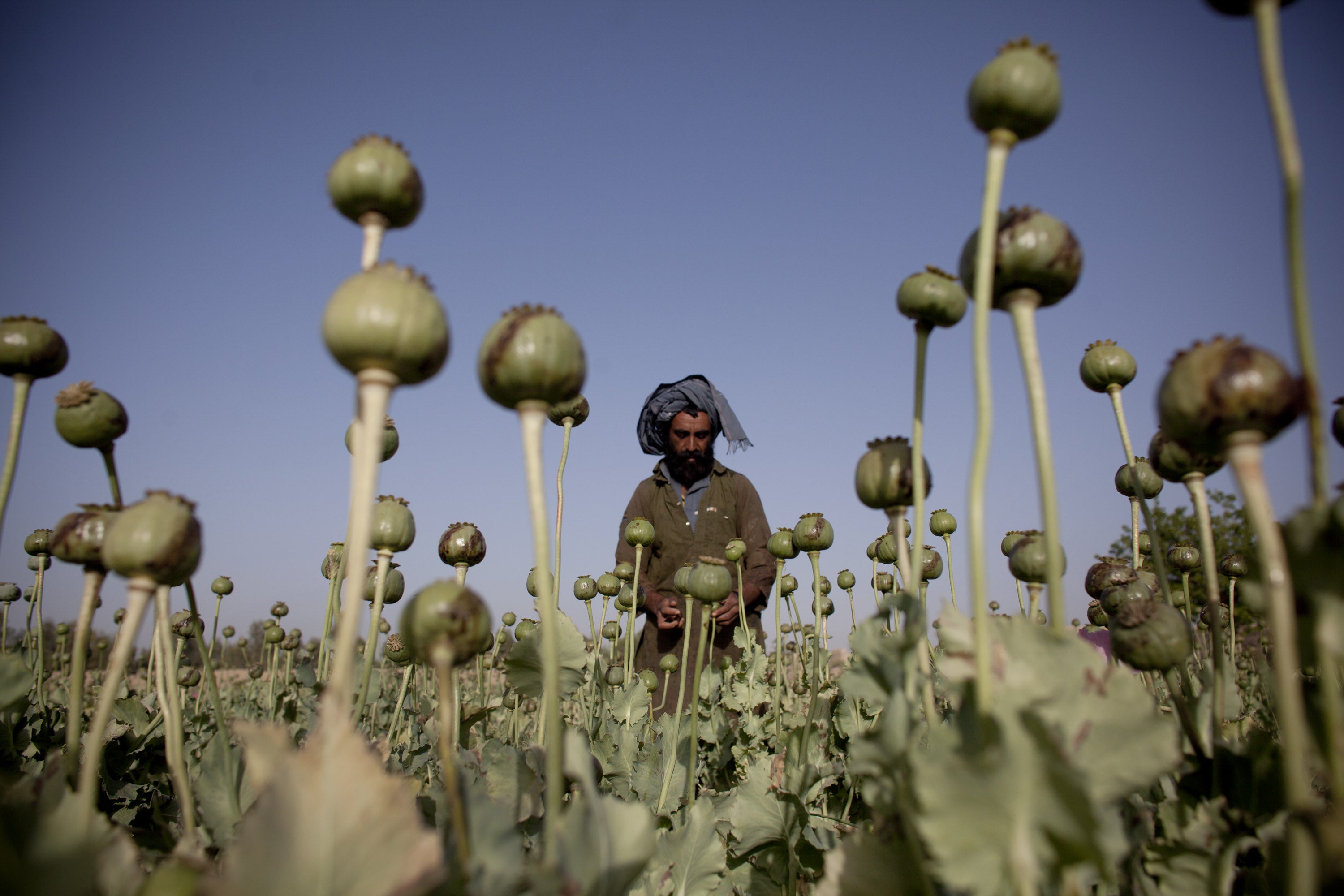The Taliban’s drug ban spells bad news for the UK and Europe – here’s why
The Taliban’s latest ban is likely to have a number of significant political, economic, and social implications


Earlier this month, the Taliban’s supreme leader, Hibatullah Akhundzada, announced an official ban on poppy cultivation, along with the production, distribution, and use of other illicit drugs. He warned that “if anyone violates the decree, the crop will be destroyed immediately, and the violator will be treated according to Sharia law”. The move is widely seen as an effort to rehabilitate the Taliban’s flagging global image, obtain international recognition and an easing of sanctions.
There are some questions about the Taliban’s willingness and ability to enforce this new prohibition. If history is any guide, we should take them at their word: the last time the Taliban outlawed illicit drugs in 2000, poppy cultivation plummeted more than 90 per cent in a single year.
The Taliban’s latest ban is likely to have a number of significant political, economic, and social implications. There are concerns, for example, about the economic impact on Afghan poppy farmers and the sprawling illicit supply chain. According to the United Nations Office on Drugs and Crime, Afghanistan’s heroin economy generated an estimated $1.8bn to $2.7bn in 2021, a considerable sum for such an impoverished country.
It is likely some farmers will continue to grow the plant, despite the Taliban’s prohibition – opium remains one of the only reliable sources of income in a country ravaged by decades of war – and others are likely to stockpile opium in anticipation of rising prices. However, the Taliban will find it difficult to manage the loss of an industry so ingrained in the national economy that at one point amounted to as much as 32 per cent of the country’s gross domestic product.
Apart from the potentially ruinous domestic impact, the collapse of Afghanistan’s heroin trade may also usher in a new era of drug trafficking in Europe and the UK, where most Afghan-sourced heroin is consumed. To date, countries in Europe have largely been spared the devastation wrought by the proliferation of fentanyl and other synthetic drugs in the US. According to the European Monitoring Centre for Drugs and Drug Addiction, Europe and the UK have averaged a few hundred overdose deaths involving fentanyl over the last few years – not an insignificant number, but a far cry from the tens of thousands dying each year in the US.
No one knows exactly why fentanyl has failed to take root in Europe and the UK. Some have suggested the abundant supply of high-purity heroin from Afghanistan has reduced the need to adulterate it with powerful synthetic opioids. Others have cited Europe and the UK’s more conservative use of prescription pain medication. Whatever the reason, outlawing heroin production in Afghanistan may trigger the influx of synthetic opioids that officials in Europe and the UK have long feared.
There is no guarantee fentanyl will dominate the drug trade in Europe and the UK as it has in the US. Regional drug markets are remarkably segregated; a new trend in one place does not always follow in another. The crack epidemic from the 1980s did not take hold in Europe the same way it did in the US, for example, nor has Europe seen the long-awaited arrival of methamphetamine.
To keep up to speed with all the latest opinions and comment, sign up to our free weekly Voices Dispatches newsletter by clicking here
It is also possible that drug trafficking organisations from other heroin-source countries, such as Colombia, Mexico, or Myanmar, fill the void left by the decline in Afghan heroin. Or perhaps European and British authorities find a way to successfully prevent the spread of fentanyl to the region.
These outcomes are certainly possible. But the unique characteristics of fentanyl – it’s easier to make, easier to conceal, less expensive, and more potent than traditional drugs – are ideally suited to disrupt the heroin market in Europe and the UK. And now it can.
It is difficult to predict at this early stage exactly how the situation may evolve, but considering how destructive fentanyl can be, it is critical officials in Europe and the UK act now to identify the emergence of fentanyl in the drug supply and take proactive steps to mitigate its effects. This includes analysing municipal wastewater, reinforcing early detection systems, and improving forensic toxicology, as well as a range of education and prevention, enforcement, harm reduction, and treatment measures. And, of course, they should speak to their US counterparts, who, unfortunately, have plenty of experience dealing with synthetic opioids and many hard lessons learned to share.
Jim Crotty is the former deputy chief of staff at the US Drug Enforcement Administration. He is currently an associate vice president at The Cohen Group, a strategic advisory firm based in Washington, DC

Join our commenting forum
Join thought-provoking conversations, follow other Independent readers and see their replies